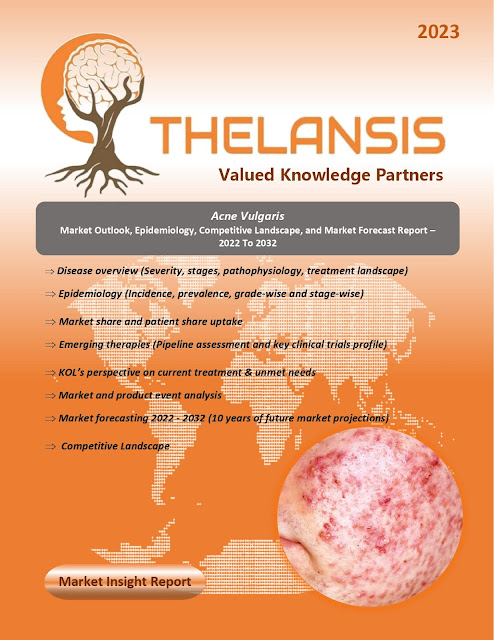ROS1-Positive Non-small Cell Lung Cancer – Market Outlook, Epidemiology, Competitive Landscape, and Market Forecast Report – 2022 To 2032
ROS1-positive non-small cell lung cancer (NSCLC) is a specific subtype of NSCLC characterized by a genetic alteration involving the ROS1 gene. The ROS1 gene encodes a receptor tyrosine kinase that plays a role in cell growth and proliferation. When the ROS1 gene undergoes a rearrangement or fusion with another gene, it can result in the abnormal activation of the ROS1 protein, leading to uncontrolled cell growth and cancer development. The exact cause of ROS1 rearrangements in NSCLC is not well understood. However, similar to other genetic alterations in cancer, it is believed to occur due to random mutations or exposure to certain environmental factors, such as tobacco smoke or occupational hazards like asbestos. ROS1-positive NSCLC tends to have a more aggressive behavior compared to other forms of NSCLC. It has been associated with a higher risk of metastasis (spread to other body parts) and poorer prognosis. However, they are more commonly found in specific subgroups of patients, such as younger individuals, never-smokers, and those with adenocarcinoma histology. ROS1 is currently targeted by several specific tyrosine kinase inhibitors (TKIs), but only two of these, crizotinib and entrectinib, have received Food and Drug Administration (FDA) approval. Crizotinib is a low molecular weight, orally available TKI that inhibits ROS1, MET, and ALK and is considered the gold standard first-line treatment with demonstrated significant activity for lung cancers harboring ROS1 gene rearrangements.
·
ROS1 rearrangements are relatively rare,
occurring in approximately 1-2% of NSCLC cases.
Thelansis’s “ROS1-Positive Non-small
Cell Lung Cancer Market Outlook, Epidemiology, Competitive Landscape, and
Market Forecast Report – 2022 To 2032" covers disease overview,
epidemiology, drug utilization, prescription share analysis, competitive
landscape, clinical practice, regulatory landscape, patient share, market
uptake, market forecast, and key market insights under the potential ROS1-Positive
Non-small Cell Lung Cancer treatment modalities options for eight major markets
(USA, Germany, France, Italy, Spain, UK, Japan, and China).
KOLs insights
of ROS1-Positive Non-small Cell Lung Cancer across 8 MM market from the centre
of Excellence/ Public/ Private hospitals participated in the study. Insights
around current treatment landscape, epidemiology, clinical characteristics,
future treatment paradigm, and Unmet needs.
ROS1-Positive Non-small Cell Lung
Cancer Market
Forecast Patient Based Forecast Model (MS. Excel Based Automated
Dashboard), which Data Inputs with sourcing, Market Event, and Product Event,
Country specific Forecast Model, Market uptake and patient share uptake,
Attribute Analysis, Analog Analysis, Disease burden, and pricing scenario,
Summary, and Insights.
Thelansis Competitive Intelligence (CI) practice
has been established based on a deep understanding of the pharma/biotech
business environment to provide an optimized support system to all levels of
the decision-making process. It enables business leaders in forward-thinking
and proactive decision-making. Thelansis supports scientific and commercial
teams in seamless CI support by creating an AI/ ML-based technology-driven
platform that manages the data flow from primary and secondary sources.




Comments
Post a Comment